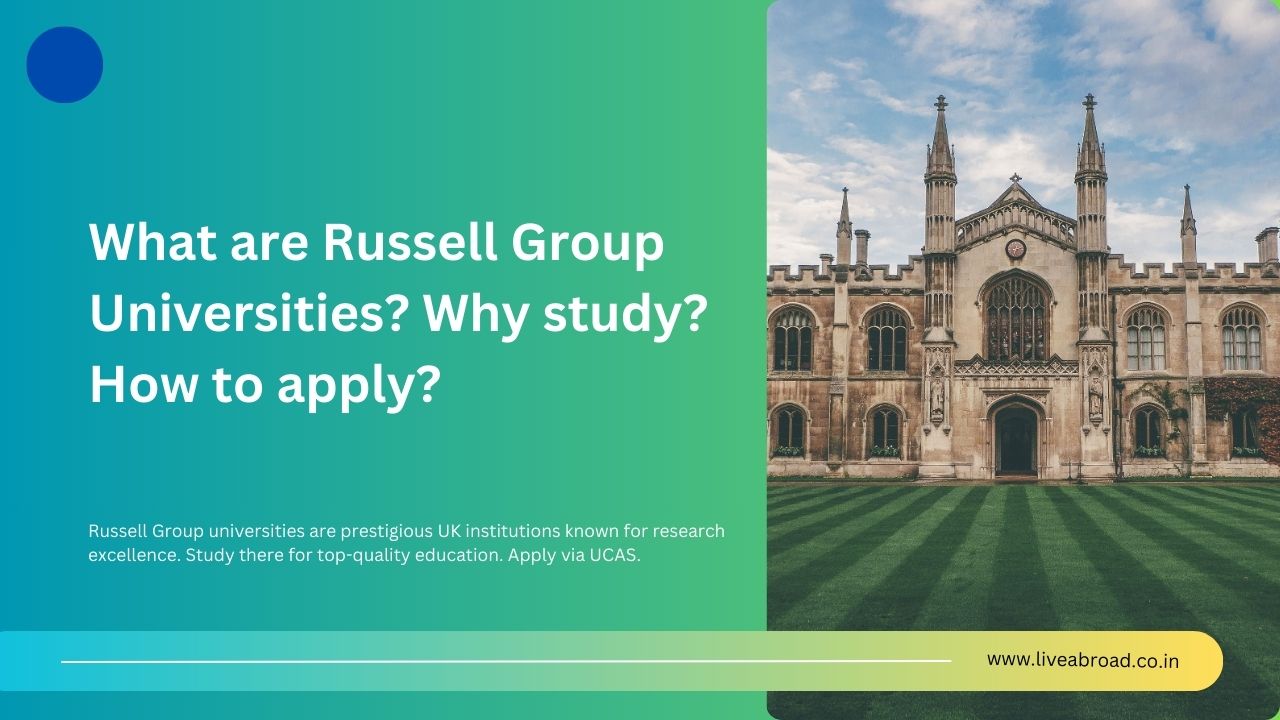If you have decided to pursue your education in the United Kingdom, you may have encountered Russell Group Universities. However, what are they? Would it be beneficial for you to enroll in one? We will provide you with all the information you require regarding them and the reasons why they are an ideal choice for graduate and post-graduate degrees.
What is a Russell Group University?
As the Ivy League in the United States, the Russell Group comprises the United Kingdom’s most distinguished research-intensive universities. These universities have exceptional teaching standards, as evidenced by their exceptional research and tuition. This enables them to establish strong relationships with the public sector and businesses. These universities are dispersed throughout the United Kingdom, only sharing a commitment to student satisfaction, research, and instructional quality. They are autonomous institutions that provide a diverse selection of courses and subjects.
What universities are in the Russell Group?
There are 24 universities that are members of the Russell Group. For the sake of your convenience, we have assembled a catalog of them:
- University of Birmingham
- University of Bristol
- University of Cambridge
- Cardiff University
- Durham University
- University of Edinburgh
- University of Exeter
- University of Glasgow
- Imperial College London
- King’s College London
- University of Leeds
- University of Liverpool
- London School of Economics
- University of Manchester
- Newcastle University
- University of Nottingham
- University of Oxford
- Queen Mary University of London
- Queen’s University Belfast
- University of Sheffield
- University of Southampton
- University College London
- University of Warwick
- University of York
Some of these names may be familiar to you, while others may be unfamiliar. However, your career and future prospects are already bright once you have matriculated in a Russell Group university.
Origin of the Russell Group
In 1994, the Russell Group was established by 16 British universities to ensure that their interests and requirements are safeguarded and represented in the government. Subsequently, numerous additional individuals joined as their educational standards advanced in the years that followed. The group’s name has since become synonymous with high-quality education.
Why study at a Russell Group university?
There are numerous reasons why an individual may elect to pursue education at a Russell Group institution, including:
Excellent reputation
This group comprises universities that are globally recognized for their exceptional academic programs, celebrity alumni, and their prominence on prestigious rankings. By graduating from one of these universities, you will have earned a degree from a globally recognized institution of the highest caliber, which will distinguish you from other candidates.
Student satisfaction
The National Student Survey revealed that students who attend Russell Group universities report the highest levels of satisfaction with respect to their academic performance, dormitory accommodations, and intellectual liberties.
Low dropout rate
These universities have the lowest attrition rates in the UK due to the rigorous vetting process and high-quality education. The completion rate is high due to the infrastructure and student consideration.
Open doors to further study
Upon entering a Russell Group university, you will have no difficulty pursuing higher education in any part of the world. Additionally, it is feasible to pursue a graduate program at the university.
Career prospects
Russell Group graduates are estimated to earn a maximum salary that is 10% higher over their lifetime than students from other universities when job success is measured in monetary terms. Additionally, attending such esteemed institutions will provide you with opportunities that you previously believed were inaccessible.
How do you apply to a Russell Group university?
The Russell Group universities are highly competitive for admission. In reality, the competition for the top spot is nothing short of brutal. This implies that you must be utterly certain that your application to a Russell Group university is flawless. Here are a few suggestions to help you gain a better understanding of the process:
- Improve your academic performance: the more successful you are in school, the greater your likelihood of being accepted into a bachelor’s program.
- Do your undergraduate degree from a good college: If you aspire to pursue a master’s degree at a Russell Group university, it is imperative that you complete your undergraduate studies at a reputable institution.
- Work experience: The acquisition of an internship or part-time employment at a location that is pertinent to your field of study will be highly beneficial.
- Extracurricular activities: Extracurricular activities are significant, regardless of whether you are a member of the volleyball team or the debating team. An all-rounder is desired by reputable universities.
Please be advised that each of these universities has its own application criteria and is a distinct institution. Additionally, their processes and requirements may vary significantly. Additionally, they may request additional information in comparison to other universities in the country, such as earlier application deadlines and more in-depth inquiries in the personal statement. Find out the precise requirements in advance to ensure that you are prepared with your documents and yourself.
Specific admission exams may be required by certain universities. However, this is not a cause for concern if you are a diligent student and a dedicated worker. If you are sufficiently committed, you will soon receive an acceptance letter from the esteemed British organization.
Are you aware? Liveabroad can assist you in the application process for the majority of Russell Group universities. Contact your Liveabroad counselor today to obtain the most up-to-date information regarding their programs, admission requirements, application procedures, and more.
